|
The Thursday Thesis - 05/09/2019 Comfort will drain your life of all meaning. Comfort will make you irrelevant. Comfort is your sworn enemy. Comfort will kill you, Stone dead. I was talking to a lady a couple of days ago - you know, all about life and stuff. She’d had a successful career and was looking forward to a “comfortable retirement” in a few years. That seems such an old-fashioned image: drifting off into a quiet life of pottering around, fading by degrees into invisibility, a thirty-year waiting room before the last, long, lie-in. There’s something deeply offensive about the word “comfortable”, at least to me. There’s a suggestion of irrelevance, of ineffectuality about it. Humans are built to strive, learn and grow – it’s what really makes us tick. If life is comfortable we are likely to become unhappy as we lack obstacles to overcome, challenges to meet, dreams to capture and dragons to slay. There seems something disturbing about being comfortable – a curious sense of drifting and lack of purpose. It’s probably just me, projecting my own hang-ups onto the word. But I would hate to be comfortable. In fact, I shudder when I imagine having no reason to get out of bed. Reason tells me that if I’m not busy growing I’m probably shrinking, because only making a demand on our bodies will stimulate growth and repair. Without stress, without challenge, we may not even maintain our status quo. I’m not ready to shuffle off into someone else’s dream of a comfortable retirement – are you? That’s an old dream, peddled by people who were sold it themselves, only to find it hollow when they got there. Get uncomfortable. Do something that takes you outside of your comfort zone. Push your boundaries, because they are shrinking in on you every single day, whether you like it or not. If you don’t push back, you’ll shrink and fade away. Keep pushing back. Get busy doing that thing you’ve always wanted to do – you know which one I mean, don’t you? It’s the thing that scares the living crap out of you: maybe it’s learning to play guitar, run a marathon, start a business, leave your job. You know I’m talking to you, in particular, don’t you? The time is now. This is your moment. This is your life ticking away. Only you are standing in your way, because The Universe is too big, cold and indifferent to care about you, one way or the other. In fact, The Universe really doesn’t give a fuck about you, so get over it and get uncomfortable doing that scary big thing. Get out of your own way and do it. Don’t get comfortable. © Neil Cowmeadow 2019 Remember to Like and Share The Thursday Thesis with your friends, family, and anyone else. I’d love to hear your comments, along with any ideas you’d care to hurl at me. [email protected]
0 Comments
The Thursday Thesis - 09/08/2018 Say the words “I am” and your entire nervous system stands to attention. Tell me what you do and I’ll likely drift off to sleep... It’s a funny thing, but when you think of those two statements the chances are that you’ll conflate them down to being the same thing – even though they are chalk and cheese to anyone interested in making changes to their lives and behaviours. Here’s why they are different: “I do” is an activity statement, whilst “I am” is an identity statement. Whenever we say that we do something we are just talking about an activity, a behaviour pattern: it’s just something we do. For example, when someone tells me that they play guitar, they are telling me what they do. This is different to when someone tells me that they are a guitarist: in this case they are telling me that playing guitar is a vital part of who they consider themselves to be. The same goes for a person who repeatedly puts lighted cigarettes in their mouth but wants my help to stop doing it. The subject who tells me that she “...is a smoker” or says “I am addicted to cigarettes...” has made smoking a part of who she believes herself to be. Making a change to her identity will be challenging and painful (for her) because it places her sense of self under threat: we all fight like demons to preserve our sense of self and what is right and proper for us. Contrast this with the same person who says “...I smoke 20 cigarettes every day” or “...I have a smoke at break-time when I am at work”. This person is recognising – probably below the level of her conscious awareness – that smoking is just something she does. In this case smoking is not part of her identity, so change will be easier to implement and maintain because it conveys no threat to her sense of self. So what? Here’s the cool part: if you consciously make the things you want part of your identity, they will feel much easier to accept into your life and to integrate with other aspects of who you feel yourself to be. Likewise, changing your unwanted behaviours can be made easier by de-coupling them from your sense of self. Both of these routes are driven by language patterns and your sense of identity; simply changing the words nudges your behaviour either towards what you want or away from what you don’t want, and this is one of the reasons why daily journaling, affirmations and goal-setting are so effective. The daily re-statement of desired outcomes, statements made in terms of our identity, realigns our sense of who we are and what is right and proper for us. In essence, we believe the lies we tell ourselves about who we are and how the world is. Try this for yourself, right now: say out loud “I am a singer”, and just notice how that feels, deep down inside... Now say “I do sing, from time to time” and notice how that feels, deep down inside of yourself. There’s a big difference between how those two statements make you feel. Unless you are already a singer, the “I am a singer” statement will probably feel bigger, more significant and more uncomfortable that the “I do sing...” statement. After all, singing is just something you do, isn’t it. This is why we resist the thing we want, rather than integrate it into our identity and do it more whilst having more fun along the way. And here’s a little sidebar to stir into the mix: some people will add a situational qualification to their behaviour and constrain it to a place or time when it is acceptable – for example, singing might only be OK when we are in the shower, driving the car, or when nobody else is at home. So what do you say about yourself, and what does that say about you? I used to say (jokingly) that I was a good guy who did bad things – just to even things out. The problem is that my tiny, pea-sized brain doesn’t have a sense of humour and interpreted the joke as a mission statement, with disastrous and life-changing consequences. D’oh! Now I remind myself that I’m a good man who does good things. And it’s getting better. Everything begins with a single thought...
© Neil Cowmeadow 2018 Please Like and Share The Thursday Thesis with your friends, family, your cat, unicorn and anyone else. I’d love to hear your comments, along with any ideas you’d care to hurl at me. [email protected] Episode 107 - Want, Should and Gonna
The Thursday Thesis - 12/07/2018 “Michael, what do you want?” As a coach, that’s my killer question, and it really is the killer question in life, isn’t it? As our session continued, my question morphed into several, subtler variations, aiming to pick out what Michael was serious about, what was just a fantasy, and which of his answers were just other people’s plans for him. You see, we all have wants and wishes, but the chances are that we won’t end up with the things we want. Why is that? There are three levels of desire, as far as I can tell:
Those three levels of desire are based on the words we use to describe what we want. I’d go as far as saying that the elusively obvious truth is that our words are cues to what really matters, as well as dead-giveaway cues to our relative levels of desire, motivation and certainty. A wish or a want is a nice-to-have-it sort of desire: we’d like to write a Christmas number one record or wish we could win the lottery, but... That “want” is a wishy-washy kind of desire – it simply isn’t strong enough to compel us to take massive, determined and focused action over time. A “want” won’t cook the rice, as the old saying goes. And as for wishes – don’t waste your time wishing for anything. Write that wish off as a pleasant daydream with precisely zero chance of it ever coming true, because that’s what a wish is. Wanting and wishing will have you coming up empty every time, because there’s no action to back them up. And action is the key. Getting off your arse and doing something about your own life and how you want to live it will move you – imperceptibly at first – in the direction of your dreams and desires. But to inspire yourself to take action you have to focus and intensify that simple want and that nebulous wish into a desire. Our personal energy is like sunshine: unfocused, we can warm a wide area of the earth. Only when we are able to gather and concentrate that energy – like sunshine through a magnifying lens – can we begin to make massive progress. Our warming sunlight can become a blazing dot of searing heat, but we need the lens to do it. So, what is the lens for personal power and achievement? I’ll tell you in a little while, after we deal with the red-herrings of all the goals we “should” and “ought to” go for. “Red-herrings?” you say. Yes, a red-herring: a false or misleading idea or thing; a device of deception. Our should and oughta goals are not really our goals: they are somebody else’s goals, or our idea of what would be acceptable to somebody else. Whether it’s a societal expectation or the desire to match-up to another person’s expectations, those outcomes are almost always expressed as “should” or “oughta”. We might achieve those goals, but we’ll invariably find that to be a hollow achievement. Think of the executive climbing the corporate ladder for decades, finally making it to the boardroom or the CEO position, only to realise that the ladder they fought so hard to climb was not leaning against anything that they, themselves, actually gave a hoot about? Here’s another thing to consider about should and oughtas – especially if you are running a team or a relationship: if someone is pushed or coerced into complying with your wishes, then you may get your project over the line or hit your target. But – and it’s a big but – expect resistance from the team or your partner along the way: there will be pushback and passive resistance any time you are forcing the issue or compelling someone to do something they are not comfortable with or aligned with. Pressed people will get even, sooner or later. So it’s safe to say that the things we should and oughta do are being verbally flagged for our attention by the words we use. Once you perceive those cues you can set about doing something that matters to you, rather than chasing someone else’s bus. Pay attention to the words... Finally there are our highest, most puissant desires – out Gottas and our Musts. These are the ones that count, and the ones that have a chance of actually happening. The moment we decide that it’s GOTTA happen, that we absolutely MUST get it done – no matter what it takes - we are much more likely to commit ourselves to taking action and making things happen. Our moments of decision are the moments in which everything changes: the change begins as a change of state, a change of heart or a change of mind, and from that moment we are never the same again. Once your attention is focused on the goal you Must have, the you’ve Gotta do, then you begin to navigate the world based upon that goal, creating a self-fulfilling prophecy of success. But this will not be easy. Goal oriented people are not like anyone else, they are changelings, and they will not be controlled or subdued, they are a tribe apart, a primal force of relentless energy - all eyes on the prize, all attention focused. So here’s the thing: what do you want? How you talk about it, especially to yourself, will be an accurate predictor of whether or not you will get what you want - that's why your words are the lens that focuses your attention. Just like a magnifying glass gathering sunshine into a pinprick of ubearable heat, the right words can gather your attention and focus your energy into a tiny dot of unstoppable power. Pay close attention to your words, they may be trying to tell you something. © Neil Cowmeadow 2018 Please Like and Share The Thursday Thesis with your friends, family, your cat, unicorn and anyone else. I’d love to hear your comments, along with any ideas you’d care to hurl at me. [email protected] The Thursday Thesis - 17/05/2018 I could have kicked myself. Come to think of it, I felt so stupid at that moment that it would have been a better idea to hire someone to kick me instead. There had been a dim recognition, somewhere in the deeper recesses of the old grey matter, that I’d soon bepublishing the 100th post of this blog – The Thursday Thesis: I knew I’d been posting once a week for almost two years, I just wasn’t sure about how many posts I’d made. My inner troublemaker was playing up again, telling me how awesome I was to have been so consistent and got something out every single week. He also said I should have a celebration to mark the event, and to be proud of myself for yada, yada,yada... But I had a problem – I didn’t know how many posts I had actually made. I’d always posted by date, rather than by episode or post number, and I had no easy way to accurately track the number of posts. Bum! It takes a lot of work to re-name all the posts in a blog and add an episode number, then to re-name the original document file in the archive. It’s also intensely dull, unless you can transmogrify the process into a game and make it fun for yourself – perhaps by thinking of the process as “capturing and branding” the wayward episodes. Life’s like that, too. So, here’s the thing I want to share: start out as you mean to proceed. When you begin something, be it health, relationship, financial, or whatever – begin with a vision of how things will look when they are done. I hadn’t started the blog that way: I just thought it might be fun to share some of the things I wish I’d learned a lot sooner. So I didn’t think of how many posts I might make, about the milestones and celebrations I’d miss out on if I didn’t keep score, or how to refer to previous episodes. It was an embarrassing planning failure, frankly. Next week I’ll post the 100th episode on this blog, so I am going to celebrate the milestone. Celebrating is something we could all do a lot more of – especially me. When I was awarded a First I didn’t want to go through the rigmarole of attending a graduation ceremony – I think that I was secretly afraid of being rumbled as the imposter I knew myself to be. Fortunately, my then-girlfriend was a lot smarter than me and persuaded me to collect my degree in person. Without her intervention I would have missed a memorable day and more or less dismissed my achievement, so I’m grateful for her wisdom. But we all do it, don’t we? We all seem to dismiss our achievements; it’s a British thing, I reckon. There’s a daft idea that anyone who celebrates their achievements is arrogant, big-headed and probably not very nice. It’s totally wrong-headed, of course, but it’s very common. One friend of mine has gone from not running at all to running 10km, solo, in less than six months: not too shabby for a woman in her sixties, is it? But she’ll have none of it: none of your fancy-pants celebrations, no “well done” messages, and no recognition of her achievements in her own mind. Personally, I’m impressed by people who set themselves a target, plan their trajectory, and launch. Oddly, their actually hitting the target is not the main thing for me – it’s the intention and the action that matter most, in my opinion. The medals, certificates, and T-shirts are just markers of what has been achieved. In themselves they are mere trash, worthless clutter – but they are concrete evidence of what happened before race day and before exam day. If we examine each fresh new day we can find something to celebrate, every single day of our lives. Embracing our own achievements can release a spurt of dopamine (your brain’s feel-good chemical) into your system, setting-up the anticipation of more and greater rewards. What’s your celebration going to be about, today? What awesome thing was it that you did? How awesome are you, today? Write it down... Do it more... © Neil Cowmeadow 2018 Please Like and Share The Thursday Thesis with your friends, family, your cat, unicorn and anyone else. I’d love to hear your comments, along with any ideas you’d care to hurl at me. [email protected] Why Your Haters Hate You... The Thursday Thesis - 03/05/18 A little while ago I posted a short Facebook Live video into a large-ish group aimed at guitar players. The clip was a simple explanation of the biomechanics behind one aspect of playing the guitar. I was clear, unambiguous, and put my points across logically and sensibly. That was when the hate began. Oh my word – I had no idea that demonstrating reality meant that I enjoyed giving same-sex oral pleasure! At least, that’s what one hater said, in not so many words. Other “keyboard-warriors” piled-in to demonstrate their ten cents’ worth of ignorance and intolerance, clearly angry that I should question their beliefs and their gods – their blessed Clapton, Vaughan, Hendrix and the rest of ‘em... Then I got it: they weren’t talking about me at all – they were telling me about themselves. It was beautiful – rather than consider the facts and my reasoning, the haters attacked and proclaimed their own positions. I’d never seen it so clearly before: haters don’t hate You, they hate how you make them feel; and that’s a big difference. At the time it was a radical idea, but now it seems obvious. Whenever you or I step outside of what other people think and believe to be right, we risk the opprobrium of those other people. You see, when we suggest a different way of seeing things, a different opinion, or ideas which conflict with the groupthink, we provoke a defensive response from the group. The group tightens and “circles the wagons” to defend itself from the perceived danger of being outdone, bested, proved wrong or foolish. Very often, internal divisions within the group are set aside to defend the common interest against the outsider, the blasphemer, the heretic. Such is life. It’s never comfortable being different: ask anyone who has challenged the status quo, a governing elite, the prevailing wisdom of “experts” and the conventions of academics about the backlash and ostracism. That’s how power and influence are exercised. Some people just hate you, and you are going to have to deal with that fact if you are to be of any consequence in the world, because the only way you are not going to upset someone is to be so insignificant and inoffensive that you might as well have never lived at all. Getting your first hater is a marker, if you will, of significance: somebody, somewhere was so influenced by what you did, said, wrote, sang, painted, danced to or drove that they took time out from their lives to comment on your life. How cool is that? The hater gave more attention to hating you than they did to pursuing their own life! So, get over one simple thing: whatever you do in life somebody, somewhere is not going to like it. You’ll probably never meet that person, and they don’t know you well enough to hate you for who you are. They are strangers who didn’t like how you made them feel when their prejudices came under pressure from your ideas. That’s all a hater is – a faceless person who feels bad because you made them uncomfortable – lashing out at someone who dared to think differently. It’s dangerous and stupid to shut ourselves down and censor our thinking or beliefs because it upsets someone we’ve never met. Remember that the ultimate rational position is to please at least ourselves. Remind ourselves that other people’s opinions of us are inconstant and beyond our control, so remembering to please at least ourselves is the only logical course to follow. Some people will hate you for saying “X”, others will revile you for uttering “Y”, and then there are those fanatics who go berserk when you dare to impugn their sacred “Z”... Look, whatever you do in this life of yours, you’re going to upset someone, somewhere. Deal with that fact and crack-on with living your own life. The bottom-line is that haters always hate someone, and today might be your turn; so, take the hate – when it comes - as a compliment and a testament to your significance, then wave at them with one finger and carry on with making a difference in The World. © Neil Cowmeadow 2018
Please Like and Share The Thursday Thesis with your friends and family – maybe they’ll “get it”, too; maybe you’ll send out a ripple into someone else’s life. Would that be a good thing? I’d love to hear your comments, along with any ideas you’d care to hurl at me. [email protected] The Thursday Thesis 5/4/2018 My friend Simon mentioned them in passing, and his words caught my ear. “...and that’s The Spirit Bead” he said “Oooh!” I responded – “I love that...The Spirit Bead...yes, very good. Beautiful.” Leaping from the Middle East to the Prairies of North America with a single bound, Simon linked the parallel practices of Moslem rugmakers in Persia to the Nations of the Dakota Sioux, Blackfoot, and many more tribes of North America. We had been talking about perfectionism’s long shadow, during an interview for my upcoming podcast, and Simon explained to me how traditional Persian rug-makers always include a tiny flaw in every rug: these deliberate errors are called “Persian Flaws”. Their belief is that only Allah can create perfection, and that to create a flawless rug or carpet is an offence against Him. Fascinating. Native American jewellery makers also included deliberate errors in their works, in honour of the Spirit World, and as an acceptance that man is imperfect. You can still see the practice today, in the Heishii beadwork made by the Navajo and Kewa Pueblo people. In both Moslem and Native American traditions, everything is made with an error included in it. Since only Allah and the Great Spirit can create perfection, the deliberate inclusion of an error reminds us that everyone is imperfect and flawed in some way. Call it a Spirit Bead or a Persian Flaw, the eye is drawn to the flaw. Whilst the great majority of the rug, or necklace is perfect - but there’s just that one little thing that bugs us and fascinates us... What’s your Persian Flaw, your Spirit Bead? Who cares what we call it – it’s our Spirit Bead that we are best known for, isn’t it? We most often remember the flawed and imperfect people because they are unusual, unexpected and strange enough to capture attention. As a guitarist, I am drawn to the imperfections present in older recordings – before digital editing made it possible to edit such things out. That’s where the “soul” is in music. In the tiny hesitations and rushes that move the player outside of perfect timing there is the musical magic of what we call “swing”. I truly believe that the dullness of playing dead on the beat is the origin of the modern slang “deadbeat”. Spare me the pristine perfection of some modern music, please. I remember when the Pure Trance music producer, Rich Mowatt - aka Solarstone - asked me to include additional pick and string noise in a guitar overdub/solo. There’s a man who “gets it”! My ears listen for the sonic Spirit Beads... And, as I said, we seek out the Spirit Bead in the people we meet. I’m not perfect, not by a long road, and I count my blessings that I am not. Perfect would be so dull! Perfect means that there’ no room to improve, no cracks to fix and no leaks to plug. Perfect means that we are irredeemably “done”. Nothing left to learn or do: I’m done. Can you imagine how depressing that would be? How dull it would be to know everything, to be perfect at everything? Where’s the growth? Where’s the failure to rise up again from? Where’s the falling-down and the bloody knee? If there’s one thing I’ve learned over the years it’s this: enjoy being yourself and enjoy your imperfections, because if you were to subtract your imperfections there’d be sod-all left except for the amorphous grey eternity of perfection. Yuk. I’m thoroughly imperfect, and – damn it all – I’m proud of it. So, to give The Finger to a world which worships perfection, I’d like to propose a toast to imperfection. Here’s to being gloriously glitch, fabulously flawed and delightfully defective; here’s to our Spirit Beads, our Persian Flaws, because they are all that stand between us and the eternal sterility of perfection. Now go and be Gloriously Imperfect: go and show off your Spirit Bead. © Neil Cowmeadow 2018
Please Like and Share The Thursday Thesis with your friends, family, your cat, unicorn and anyone else. I’d love to hear your comments, along with any ideas you’d care to hurl at me. [email protected] The Thursday Thesis - 29/03/2018 In the course of the last 18 years teaching people to play guitar and make music, I’ve become familiar (not in the biblical sense, you understand) with an exotic beast: The Unicorn of Cleverness. Such is the beauty and power of The Unicorn of Cleverness that both students and myself have been lured off the path of simplicity and elegance by this scintillating creature. Whenever The Unicorn of Cleverness puts in its appearance...“Ooh, look – a Unicorn!” we cry, with glee. But here’s the thing, the moment a Unicorn prances into our heads, then “POOF!” rational thought goes down the pub for a swift loosener and a bag of scratchings: and it’s all downhill from there. And we are always looking for Unicorns, you know. At this point I’d like to go on record as stating that I have nothing against Unicorns per se. I’d go so far as to say that one of my best friends is a Unicorn, but “she’s not the Unicorn you’re looking for”, as Obi Won would have put it. But Unicorns are really intellectual vermin: an infestation of the psyche. Here’s the problem: when we are learning something new, exploring a new idea, we can too often presume the presence of some esoteric or special quality one needs to advance into competence – that’s our Unicorn. Our lack of skill and understanding makes us fill in the blanks with The Unicorn of Cleverness And nowhere is this more prevalent than in “The Arts” – music, literature, painting and the like – the domains of talent and inspiration. And Unicorns. It’s all bollocks, of course. The Unicorn we’ve been lured into believing in is nothing more than a swaybacked old mare with a carrot stuck on her forehead, hyped and puffed-up beyond recognition. I posit thus: there is no such thing as special talent or inspiration - everything is learned, and everything is trainable. Ever see a baby, newborn and screaming, reach for a paintbrush? Me neither. So much for the “born artist”, the “innate gift” and the “talented genius”. Everything is learned, and everything is learnable. So, logically, I have a problem with the presumption of Talent and the pretensions of The Arts with a capital “A”. Some practitioners of The Arts would have you believe in their special gifts and their uncommon inspirations – their Unicorns of Cleverness, which are available to you at a knock-down price, of course. In lieu of understanding that technical skill, willingness to fail, and airtight self-confidence, we fall in love with the toxic myth of Talent: better known as The Unicorn of Cleverness. Many of my students have spent decades believing in Unicorns, and will fight like tigers to prevent anyone taking that belief away. I ‘m a teacher. I slay Unicorns © Neil Cowmeadow 2018
Please Like and Share The Thursday Thesis with your friends, family, your Unicorn and anyone else. I’d love to hear your comments, along with any ideas you’d care to hurl at me. [email protected] Same Difference...
The Thursday Thesis - 22/02/2018 We humans are a contradictory lot, aren’t we? As a race we are always saying one thing and doing something completely different. Fickle, fickle, fickle! We have an inbuilt drive to experience change, novelty, difference – it’s human nature. Of course this manifests itself in unexpected ways: nothing is ever as straightforward as it seems the moment humans start getting involved. But here’s the thing: if you have lots of change you’ll crave a change away from change. Anyone who experiences massive ongoing change will begin to seek stability and sameness. You just can’t please some people... So there’s a sort-of continuum in human behaviour – an imaginary line – with the need for change at one end and the need for sameness at the opposite end; and whichever end of the continuum you are on, your chances of success are low as you shuttle repeatedly from one end to the other, trying to satisfy both needs. As you and I both know, chopping and changing reduces our chances of success, be it living more healthily, building a business, or learning to play a musical instrument. The constant flitting from one bright-shiny new thing to the next is a dead-certain way to never achieve very much, as every switch incurs a time-cost whilst preliminaries are completed and new skills are learned. In a contrary way, too much sameness can be a massive contributing factor to failure: we simply get bored and lose interest. So how do we come to terms with these opposing behaviours? How do we stay interested and have enough variety whilst simultaneously staying focused on our One Big Thing? The answer is to fold the change-sameness continuum in half, so that both ends point the same way. Now your sameness and difference needs are aligned. And that’s the magic trick: make sure that everything you do is congruent and consistent with your values and your One Big Thing. It’s that simple, and it’s that complex. Within the limits of whatever it is you most want to do, you have absolute freedom to do different activities, to experiment and explore – as long as you stay in line with your One Big Thing. The penny dropped with me when I realised that everything I do is aimed at helping people. When I’m teaching guitar, I’m aiming to save people years of precious time, frustration and self-doubt. That’s the real, deep-down goal – I suppose you could say that the guitar is the means to that end. When I’m with my coaching clients I’m helping them to change their lives for the better, relieve their pain, release them from some constraint. Likewise, when I’m working with business owners to grow their businesses, I’m helping them to get past their sticking-points or to change their perspectives so that they can better serve more people by solving their customers’ problems. My property business provides safe, secure homes for people in the long-term. Families need not worry about the house being sold from under their feet on a landlord’s whim, because my business exit strategy is death! And when I write a book, a special report, or even this blog post, I’m not writing to show off or make myself look good - I’m trying to pass on something that’s helped me, in the hope it will help another person. Perhaps it will help you or someone you share it with. So everything adds up to just two things - just five words. Those five words have been the first line in my daily journal every day for three years: “have fun and help people”. Everything points one way, but there is always enough variety to prevent me from ever getting bored. And if I can “have fun and help people” every day then I will consider myself successful and that my life will have been well-lived, assuming I manage to live long enough to offset all the stupid, hurtful and selfish things I used to do! So, what’s your One Big Thing? What gets you excited, keeps you awake and buzzing deep into the night? Figure that out and you’ll have the consistency that you need. Do different things which all serve your mission and you’ll have all the variety you need to keep the fire in your soul burning, day after day, year after year. It’s all different, and yet it’s all just the same. Just like me and just like you. © Neil Cowmeadow 2018 Remember to Like and Share The Thursday Thesis with your friends, family, and anyone else. I’d love to hear your comments, along with any ideas you’d care to hurl at me. [email protected] The Thursday Thesis - 15/02/2018 When credible Professionals call someone Obsessive-Compulsive and then expect them to be able to change it’s a really stupid plan, don’t you think? Yet that’s the kind of conventional psycho-twaddle we are expected to believe will make us better, more “normal” – whatever that is. I’ve already discussed why “normal” is bollocks in earlier posts, so I’ll give you a reminder of the take-homes about normal:
So, if someone you respect or believe tells you that you’re OCD, you might want to not accept their diagnosis. I’ve even heard tell that some parents say this to their kids, believe it or not. It’s like you’ve won the lottery or something... Congratulations – you are OCD! But here’s the thing about a diagnosis or a label for a condition: believing in it and complying with it. The moment you accept the condition and start telling everyone about your disorder or – better still – your fancy-sounding syndrome, you’ll start to act it out. The more you research it, the better actor you’ll become: the longer you practice, the more type cast the role becomes for you. Listen, if you’re going to obsess about something, at least man-up and get serious about something more bloody important than how many coloured pencils are in the cup on your desk or how many birds are on the fence. Of all the fascinating, dynamic and fun things people could obsess over, why is it so often the trivial and irrelevant minutiae that fixates? This makes OCD about as trivial as any other hobby, sort-of like trainspotting but without the upside of permitting anorak-wearing. Did you know that anoraknaphobia is an irrational fear of trainspotters? I guess I’m ranting about this because last week I decided to challenge my students and clients who declared themself to be OCD: the results were fascinating...Cures took less than a minute for the youngsters, because they haven’t had as much practice as the adults, who took a little longer. Thinking positively about OCD: could it be the making of you if you focused it on something that mattered more than how many times you flipped the light-switch before bedtime? If you really must have a condition, disorder or diagnosis I think you owe it to yourself to challenge it, defeat it or utilise it. © Neil Cowmeadow 2018
Remember to Like and Share The Thursday Thesis with your friends, family, and anyone else. I’d love to hear your comments, along with any ideas you’d care to hurl at me. [email protected] Sharp Dressed Man... The Thursday Thesis - 08/02/2018 Steve Jobs was never known for being well-dressed, was he? The Apple founder was invariably seen wearing jeans and a black turtleneck jumper, sort of scruffy, but very much in keeping with Steve Jobs’ projected personality. Why would such a successful entrepreneur wear the same clothes every day for most of his life? Where are the gorgeously tailored Armani suits, the hand-stitched shoes and mega-dollar watches? Not a trace of them. Now here’s the thing: Jobs was both making a statement and defining himself. Effectively he’s saying “here I am, I’m not interested in conforming to how you expect me to be: you must accept me on MY terms”. It ties into Apple’s famous “Think Different” ad campaign, as Jobs defies the conventional image of a corporate success. But the real power of that turtleneck is what it gave Steve every single morning: clarity. You see, selecting an outfit from a huge wardrobe takes a certain amount of effort – it’s actually a stressor. Steve Jobs was savvy enough to know that his finite attention was too precious to squander it on the trivialities of how he dressed from one day to the next, so he made a strategic decision to only buy blue jeans and black turtlenecks. That turtleneck eventually became a part of Jobs’ personal brand – it shows up in almost every photograph of the guy. Inevitably, I decided to try out having my own dress code for a little while... All of my T-shirts went into black bags for the trial, and were replaced by 6 long-sleeved grey jerseys and 6 grey T-shirts – nothing fancy, just Marks and Sparks’ own brands. The first few days were strange – the drawer missed my brightly coloured T-shirts, and I was close to rummaging in the black bags for that red shirt I love. But, in the name of research, I stuck with it – even though it was weird. After just one week I found myself relieved that I didn’t have to think about what to wear. Now I just open the drawer, take out a grey jersey, and get on with the day – it’s so easy. Bizarrely, having a huge choice of colourful T-shirts was actually a bad thing; and having no choice was a very good thing. Steve Jobs was no dummy, was he? Please remember to Like and Share this post.
Pass it on. The Power of No... The Thursday Thesis - 01/02/2018 There are some very powerful words in the English language. Some words are almost guaranteed to soothe, others to anger, and some to outrage. But there’s this one little word – NO - that seems uniquely powerful when it comes to creating a state of fear in us. It’s the fear of no which makes asking someone out on a date such a big deal. We know – deep down – that he/she is not currently part of our lives, so the only real risk is that they will remain that way. Yet we prevaricate and flounce around the issue, summoning up our courage and bracing ourselves for rejection. “What if she says NO?” we wonder... Dude - if she says NO - it’s no biggie, ok? So she says NO and there’s no change in the world as I know it: what was all that worrying about? Tragically, I know one woman who is so afraid of hearing NO at some time in the future that she flees every relationship that’s going well! So much for romance and rejection, then. But what about when people ask us to do something we don’t want to do? We know we don’t want to do it, but we often cave-in to their demand and say yes, just to be nice. Now, I think this is both odd and ludicrous. Saying yes to what someone else wants might mean that we have to say no to what we want, perhaps even violate our own moral code. In this situation we might start to worry that the other person might fall out with us if we don’t go along with their request, even though it is not in our best interest or attuned to our values. Personally, if someone will fall out with me because I won’t go along with something that is anathema to me, they’re probably not the best sort of person for me to be hanging out with anyway. The flipside of fearing NO is equally powerful: just say NO. As soon as you learn to harness the power of NO, you have control of your own time, lifestyle and, perhaps, even your destiny. Say NO to what is not in your best interest, and you can say YES to what is. Say NO to what you don’t want, and you gain the ability to say YES to what you do want. When was the last time you said NO to anything? And what are you doing, today, that would you like to say NO to? It’s your call. © Neil Cowmeadow 2018
Please Like and Share The Thursday Thesis with your friends and family – maybe they’ll “get it”, too; maybe you’ll send out a ripple into someone else’s life. Would that be a good thing? I’d love to hear your comments, along with any ideas you’d care to hurl at me. [email protected] The Thursday Thesis - 25/01/2018
It was embarrassing, and my friend was concerned. My head lolled around and I could barely keep my eyes open, then my words started to shut down... It was embarrassing, not to mention weird. I wasn’t drunk: I never drink. But it felt unpleasantly like being drunk – if I remember correctly how that felt. Incidentally, if you want to know what’s unpleasant about being drunk, ask a glass of water. But something wasn’t right: something had shut me down. Think back, Neil... Two double espressos, cheese on toast, cappuccino to follow lunch... blah, blah, blah. Nope, nothing sinister in that list, right? In fact, with all that caffeine rushing through my system, I should have been wired! But I was nodding and flopping all over the place, struggling to string a sentence together - what the hell was going on? I remember wondering if I was having a stroke or some life-altering health crisis: that’s how bad it was. My friend propped me up in my chair and now tells me that my eyes rolled upwards, then closed and I began to snore like a diesel engine idling. Flattery! Twenty minutes later I was wide awake and raring to get on with the day. Peculiar... Two double espressos, cheese on toast, a cappuccino... It bugged me, the way that only a mystery can bug a restless mind. It’s happened too often, and I kept thinking about it, asking why I had these episodes, these shutdowns and crashes. I thought back about them, looked for a pattern, a possible reason for the mysterious crashes. Bread. Bread – or more accurately – wheat. It seemed that every single crash had been preceded by some kind of wheat product: a sandwich, a pastry or snack grabbed from the supermarket en route to somewhere. Now this was bad, bad news for me, because I LOVE bread – especially fresh bread, still warm and aromatic from the golden oven. I didn’t want to be right, because I wanted to have bread in my life. Ah, bread... A test! Yeah, that’ll do it – “I’ll go wheat-free for a few weeks and see what happens” I thought. “I’ll prove that bread (aaaah, bread....) has NOTHING to do with my crashes. Then I can have as much bread lovely bread as I want and I’ll be absolutely certain that it’s not part of the problem; well, that’s what I thought. The cravings were the worst – worse than when I stopped drinking alcohol in my twenties. I’d find myself on autopilot in Sainsbury’s in-store bakery, breathing THAT smell in like it was the half-remembered perfume of a love affair, my mouth wet with anticipation, only just able to wrench myself away without a crusty loaf or a bag of Danish. But the crashes stopped. What a pisser. The very bread I loved had been knocking me out for how long – months, weeks, years? Who knew? Digging deeper into the mystery I heard stories of increasing gluten content in genetically modified wheat, gluten intolerance and Celiac disease, and all sorts of anecdotal evidence of other people’s experience. That was all very interesting, but nothing very solid that I could point to for sure. So I decided to just go with my gut and trust the evidence that I’d got, first-hand: at least that was reliable. That was several months ago, and the crashes receded into memory. So – naturally - I did something stupid: I had a huge cheese butty. If you don’t know what a butty is, you need to get out more. That crusty butty was so delicious that I had another – then I had a nap in the car because I was too dozy to drive. I did tell you it was stupid, didn’t I? Now, here’s the thing – if I’d not tested the daft idea that bread was my problem, I’d still be crashing after breakfast, lunch and dinner, or even just a snack, because wheat is cheap and abundant it finds its way into all sorts of food – especially cheap foods and fast foods. If you’ve ever fallen into a Carb Coma after lunch, test what you’re eating. Perhaps you’ll find – like me – that the sandwich you think is topping-up your energy levels is flat-lining you instead. If it works, you can change, but until we test what we are currently doing we are flying blind, guessing and bumbling through the day. Life’s like that, isn’t it? © Neil Cowmeadow 2018 Please Like and Share The Thursday Thesis with your friends and family – maybe they’ll “get it”, too; maybe you’ll send out a ripple into someone else’s life. Would that be a good thing? I’d love to hear your comments, along with any ideas you’d care to hurl at me. [email protected] Dead, Dead, Dead, Dead....Lines The Thursday Thesis - 18/01/2018 It’s Friday – my blog post is a whole day late – Shame on me! Hmmmm...It’s not like me to run blow a deadline: I’m normally pretty good at that kind of thing. So what gives? Truth is that I settled down to do a ton of office work Wednesday night and – you know how it is – lost track of time. Before I knew it the sky was getting light. “I’ll just do this one last thing....” Then it was after 9am – definitely time for bed. So I missed my deadline for Thursday posting to the blog, and I’ve been thinking about deadlines for a fair bit of the day: what they are and what we think they are, and how we all can use them to get a little more juice out of life. A deadline is a target for completion of something - no surprises there. But what makes deadlines so powerful for us is the limitation of time itself. If we have forever to get things done, that’s usually how long it will take, right? We will – of course – do double tomorrow, but today’s slice of Elephant Sandwich is left untouched to grow dry, mouldy, and curled-up at its edges. We’ll eat it tomorrow... Now here’s the best bit: you’re going to die. Yep. You, me and everybody else is dying right now. We are mortal, and mortality is the greatest gift mankind ever received. Death, in and of itself, is the endpoint of your project, the blinking-out of your existence. It is neither good nor bad: it is merely an ending. Acknowledging the inevitability of death is the supreme focuser. Wise people regard the future and its end with a steady eye, unblinking and ready. They will have lived to the fullest a life of their own choosing, worked like billy-oh to bring their dreams to life, conscious that every day is a day closer to leaving it all unffinished. Death is the greatest driver of Progress because people with passion and vision fear that their vision will never be realised before the last tick's echoes fade into silence. The clock is always ticking. And for some people the end of their life will arrive unexpectedly, leaving them with no time to learn to play the guitar, write that book, call that friend, say the words... There’s a deadline on everything, and it’s foolish to ignore that inconvenient truth, because it ain’t going away. So, before we all meet the deadlines of our demise, let’s set a deadline on living, chasing our dreams, daring to grow, reach, stretch, learn. Today - before midnight Friday chimes and my day-late blog gets a day older - do something to begin to live the life you really want. My friend, you and I have a deadline to meet Remember to Like and Share The Thursday Thesis with your friends, family, and anyone else. I’d love to hear your comments, along with any ideas you’d care to hurl at me.
[email protected]
"Timing, perseverance, and ten years of trying will eventually make you look like an overnight success" Biz Stone, co-founder of Twitter That quote drifted into my consciousness earlier today, and I got to thinking about the phenomenon (well, the myth) of "Overnight Success" - the come-from-nowhere band, the unheard of entrepeneur who is suddenly on every social media stream, news channel and billboard ad. It's a funny thing, isn't it - the idea of an "Overnight Success"? Most people look at a successful person or a high-performer and think that they "just are" successful - that it all happened at once. We make the assumption that Successful is just how these people are - that it's an innate or inborn quality, not available to "ordinary folks" - people like you and me. Now, here's the thing - that kind of mental shortcut - jumping from where we are now to where That Successful Person is - completely skips over the journey that got That Successful Person to where they are in the first place. It's like thinking of Tokyo and wondering why we are not there already, without ever considering the necessity of booking a 'plane ticket and getting to the airport. But there's a problem here, and it's almost a universal: we envisage making the instant transition from here to there in a single bound - thousands of miles in a single instant. A leap like that is just too much, too big, too far - impossible! So most people don't even try - it's tragic. But there are ways around the problem - here's my favourite bypass around the perceived mega-leap. Think of yourself in possession of the outcome you want - the destination, and ask "What did I do before that?" over and over again. You will then backtrack in time to figure out how you got there, right back to the very first step of the journey - the step you can take today. Take that step. © Neil Cowmeadow 2018
Remember to Like and Share The Thursday Thesis with your friends, family, and anyone else. I’d love to hear your comments, along with any ideas you’d care to hurl at me. [email protected]
The Thursday Thesis - 04/01/2018 I confess... last night I bunked-off. When I really should have been writing this post I was mucking around doing a Facebook live video, aiming to share the way that poor/inefficient technique gets in a guitar player’s way and makes life harder than it need be. Why do I tell you this? Because of the responses it produced. Now, some folks “got it” and liked the clip, but a lot more people didn’t get it and gave me some feedback, suggesting that I am a “soulless hack” and a “limited player” on the basis of me explaining mechanical principles as they apply to guitarists. This was to be expected though, because I understand that it is our human nature to defend our current belief systems in a drive to prove ourselves “Right”. As a species we absorb and adopt all sorts of ideas and beliefs, usually without being aware of it happening. If an idea works once, we’ll probably try to do it a second time because it worked before. If it works a second time we’ll use it again and again until it becomes our normal way of operating. Now here’s the thing – clinging to one idea and refusing to test or consider alternatives locks the mind into a prior point in time, shutting-out the chance to learn and grow, to do something better. We humans are funny creatures, aren’t we? What we currently know, we will defend. Opinions which contradict our current understanding of how things are make us feel threatened, so we will usually fight back against new ideas. That’s why the comments were mostly from those who didn’t get it. The risk is that the scary new thing could be exactly what you need. That new thing could be the mental equivalent of an upgrade to your computer software that finally fixes that bug... What we currently know could be causing us to push away the thing we really need to know. History is littered with the bodies of dead dogmas which have been superseded by innovations and discoveries. That’s progress. What do you currently believe that you’d like to be wrong about? What do you “know” that you’d like to change? What is it that you are sure of, right now, that you would like to be unsure of? Please Like and Share The Thursday Thesis with your friends, family, and your cat. I’d love to hear your comments, along with any ideas you’d care to hurl at me. [email protected] © Neil Cowmeadow 2018
The Thursday Thesis - 28/12/2017 Well, that was 2017. So, how was it for you? Did you keep your phoney-baloney New Year’s Resolutions, or were they just too much trouble? Research shows that the vast majority of people who make New Year Resolutions fail to keep them within the first two weeks: this will come as no surprise to you, because you and I have both done it, haven’t we? And the chances are that we will do it again...and again... We might even have noticed that New Year’s Resolutions don’t work. It’s no big deal, and it’s no surprise to US!! I propose that we both give New Year’s Resolutions The Finger, and figure out something that actually works better. I’ve made a start, and here’s what I came up with: if you want to change, there is no better time to start than at midnight. By “midnight” I mean any midnight – common or garden variety midnight - not just January 31st. That’s because midnight is the tipping point of time: it’s when today becomes yesterday and tomorrow is no longer an unfulfilled promise, just out of reach. Time “tips” over at midnight every single day, 365 days every year – how did we miss that fact and settle for New Year’s Eve as the very best day to make changes? Why only one day? Come on, now: if you did something once a year would it become any easier? What if you did that thing every single midnight? If you have just one attempt and you blow it, then it’s all over for another year. Now imagine you have another 364 goes at it – a whole 365 chances to make that change you want in your life... Remember that you only need it to work once... How do you rate your chances of hitting the target now that you’ve got another 364 extra shots at it? To make A New Year’s Resolution might be a massive mistake, because it’s a one-shot deal: it’s shit or bust, make or break. Give me one chance every year to get what I want and I’ll take it, if that’s the only offer there is. But the reality is that there are always 365 chances on the table, and I am going to take them all: how about you? I’m going to seize 365 of those 365 chances to make choices about how I live, work and love – and I only need one of those chances to work – just like you do. So, how are you doing today? Share your Awesomeness! .Please Like and Share The Thursday ThoughtCast with your friends, family, and anyone else. I’d love to hear your comments, along with any ideas you’d care to hurl at me. [email protected]
Abracadabra!
The Thursday Thesis - 21/12/2017 And with a word, it came to pass... Just like in fairytales, words are truly magical. Though nobody knows for sure where it came from, the magic word “Abracadabra” has been around for a very long time – at least since the Second Century. The frontrunners for its origins are the Hebrew "I will create as I speak" and the Aramaic "I create like the word". Whichever one of these you prefer, the underlying principle is this – words create the world. When I’m teaching my guitar students, working with my coaching clients, negotiating with someone in a business deal or just talking with a friend, I’m listening closely; not just to the meaning they are putting across to me, but to words they are saying. Why would I pay close attention to the actual words? Because the words we use are a map of our thoughts and the way we think about the world. It’s amazing to think that whatever you or I choose to say is going to declare our whole philosophy and way of being to anyone who is really listening. Say “Life is hard”, and guess what? What if you said “Life is an endless dance”? Or perhaps “Life is a game, and I’m enjoying playing”? Do each of those phrases give you a clue as to how the person speaking them lives on the inside? Abracadabra! Here’s the good news – it doesn’t matter whether you select the words first or develop the mindset which generates the words first. It’s a circular process, so you can begin anywhere. Today’s fun game is to begin to notice how you say what you think you’re saying. What words do you use when someone says “hello” and asks how you’re doing. One of my dearest friends always responds that she’s “plodding on”... Come on! What if she said “I’m awesome today; thanks for asking”? That’s a whole different vibe isn’t it? Is my friend going to feel differently when she tells the world that she’s awesome, rather than plodding on? Of course. We each create our own version of reality, because there is only our interpretation of external events – all of which we filter through our own prejudices and preconceptions. What I’m suggesting here is that we all notice – through our words – what our filters might be and how we might enjoy tweaking them for more fun, success, happiness, closeness, wealth, or anything else we’d care to have more of. So, how are you doing today? Tell me, in the comments box below. Share your Awesomeness!
The Thursday Thesis - 14/12/2017 I can almost hear you yawn when I say the word “system”, which is odd because systems are your mind’s natural way to streamline everyday life, taking repetitive events and movements from being reactions to random events through to effortless unconscious processing of known sequences. The most common example of this process for most people is learning to drive. First time behind the wheel and there’s a terrifying amount to take in: your instructor, the pedals, seat adjustment, mirrors, lights, gearshift, handbrake, ignition... and that’s before you even begin to move and encounter the world outside of the car! So, at first you are incredibly lumpy – you grind the gears, stall, lurch and bumble around at low speed; all of the time on the edge of your seat and desperate not to hit anything. In the early sessions your brain is dealing with every operation on a conscious level because everything is new and there’s no system to handle that amount of data. But, over time, your performance of the same actions in precisely the same way causes something wonderful to happen: your brain changes to improve your performance. Yes, your big ol’ brain is always changing – it actually re-shapes itself to optimise the way it processes data – we call it neuroplasticity. Ian Robertson, a neuroscientist, describes the brain as a “trembling web” in his book Mind Sculpture (link below), and it’s this mutability that is the reason people can often recover from injury or damage to the brain. So, the more you do something, the more your brain assigns and connects nerve cells to perform the activity better: what you do, regularly, sculpts your brain into an elegant and efficient system which is custom-made just for you, by you. Here’s how it works: When something is new to us, we process the data in our working memory – the short term electrical part of our three-stage memory system. Storage here lasts only a few seconds, unless there is an unusually strong associated emotional component, as in cases of trauma. With ongoing repetition of the action, our brain passes the increasingly-familiar action across to the chemical part of our memory system, conserving the scarce and precious working memory for more immediate and potentially life-threatening occurrences. Keep on doing that same thing in the same way, and something truly magical happens: your brain “grooves-in” neural pathways to enable a physical memory track to be formed, allowing rapid recall and performance of the task that was once so clumsy. If you’ve been driving for a years, you probably don’t even think about it anymore. That’s because the act of driving has been encoded into the physical structure of your brain: in a very real sense, driving has become a part of who you are. What a system! As a guitar teacher, this is exactly the approach I take with my students. I know that when a player performs the same technique with precisely the same finger and hand movements, every single time, they will encode the technique more deeply and more quickly than if they use a variety of finger movements. Without that clarity and focus of consistent repetition, there is no system for the player, so every piece of music is processed de novo, and the player struggles with a shifting and random action. Consistency forms habits, and habits are your brain’s default operating system. Change your habits, and you will change your brain: change your brain, and you will change your life. . © Neil Cowmeadow 2017
Like and Share The Thursday Thesis with your friends, family, and your cat. I’d love to hear your comments, along with any ideas you’d care to hurl at me. [email protected]
The Thursday Thesis - 30/11/2017 Just suppose that you figured out how to transform almost everything that you currently hate or are bored by into a joyful experience – how would that feel? You can, all you need is drugs. Seriously, drugs do the business: but the drug I’m talking about is dopamine - your body’s natural feelgood chemical. Your amazing body floods with dopamine every time you complete a significant task or achieve something you consider to be important. Unimportant things are sort of “Meh!”, whilst important ones are “Yeah!”. The key is the importance we attach to the things we do: if it’s important, we are rewarded with a rush of dopamine. The secret – I believe – is to make it all a game, then get busy playing. Since everything is a game, everything is fun. And since I’ve chosen to play this game, it must be important to me, right? When I’m teaching guitar, the game is to outwit the student’s blocking mechanism and make a commando raid on their preconceptions, freeing their imprisoned potential to make music. When that mission is accomplished I get a MASSIVE buzz of dopamine and I want to do it again. If I’m working on a book, the game is to herd all my thoughts into an order that makes sense, then rummage around for the right words to express my thoughts, pulling them one-by-one from the ragbag of my mind. And when I’m working in my property business, the game is to outwit my own fears and preconceptions, to go into battle with – and slay - the dragons that roam my psyche. Am I working, or am I just playing? To be honest, the borders blur and work becomes play: I haven’t done a day’s work since I learned this principle, and there are days when I resent sleep and the need to put away my toys for the night. So here’s the deal: Go Fun Yourself. Spend 17 minutes, today, re-framing the dull stuff into a game or two – then go play. Game On! © Neil Cowmeadow 2017
Like and Share The Thursday Thesis with your friends, family, and your cat. I’d love to hear your comments, along with any ideas you’d care to hurl at me. [email protected]
Ripples... The Thursday Thesis - 23/11/2017 On Sunday I was invited up on stage, to talk to a room filled with current and potential property investors about my own little Adventure in property. Why would I want to speak to a group when I didn’t have anything technical to share with them? Why would I want to get up there and potentially make myself look daft? After all, I’m no expert in the property game after just one year in it. The Ripple. That’s what made me say “yes” to the invitation – the chance to reach more people and to drop a thought or word into the mind of someone else in this world, then watch the ripples spread outwards... So I stood up and told them The Truth as I see it... When I looked them in the eye and told them that their life was their choice, someone nodded. When I told them that nobody was coming to the rescue, I heard some gasp. And when I told them about my son, my reason for working harder than anyone else thinks is reasonable or sensible, a woman wiped a tear from her eye. When I left the stage I was high-fived and hand-shaken by audience members, then I was asked to mentor a couple of the young men. That’s a lot of ripples. On Monday I received an email from an audience member thanking me for my inspirational words – informing me that he and his brother had been moved to action and change by my little talk, and that they had registered their business domain and formed a limited company that very day. That’s what a ripple is – it’s when another human being “gets it” about themselves and moves into a state of power as a result of your input. When I teach, I want to set off ripples in my students' minds: I want them to know that they can play guitar, that their naysayers are wrong, and that the only person who can make them give up is themself. I live to create ripples, and - if possible - to make waves. When you decide to believe in yourself - to change your destiny and to take action - that’s a ripple. You see, we all send out positive or negative messages which, in turn, produce either positive or negative ripples. We humans are always communicating something, be it good or bad. Your mission is to drop a positive thought-pebble into someone else’s mind, today. I know you will do it, and perhaps you just heard the “SPLONK!” of my own thought-pebble dropping into the still waters of your own mind... Now go and make waves. © Neil Cowmeadow 2017
Like and Share The Thursday Thesis with your friends, family, and your cat. I’d love to hear your comments, along with any ideas you’d care to hurl at me. [email protected]
The Thursday Thesis - 16/11/2017 People are strange creatures, and some are stranger than others – perhaps that’s where you and I fit in... So here’s an interesting phenomenon with parallels in everyday life; see if it resonates with you, and if you know any crabs. Take your kid crab fishing for a few hours... Hopefully you’ll catch a load of crabs and drop them into your bucket, then you can watch them doing their thing. Now, do you see that greenish one over there – the one trying to climb out of the bucket? Notice that he gets so far, then that other crab reaches up a claw and pulls him back down? Yes, crabs in a bucket actually prevent one another from escaping from captivity. And here’s the thing – people do that, too. The people around us – and they’re usually the people who sincerely have our best interests at heart, because nobody else cares – try to hold us back, pull us back into the bucket. They want to protect us from danger and preserve the nice, safe status quo. But if the status quo is making us unhappy...? How is keeping us stuck in a place we don’t want to be in, a job we despise, a relationship that is toxic, ever going to help us? Those grabbing claws are now another thing from which to escape, aren’t they? Our best hope is to find an eccentric crab with a thick carapace who will allow us to climb on their back to assist our escape. Better still, find a crab who has already escaped from the bucket and who will give us an escape map and then pull us out of the bucket. I found my helper crab in a book, after a helper crab named Norman, pointed a claw at it. Here’s the book: Think and Grow Rich, by Napoloeon Hill. The book shops and libraries of this world are full of helper crabs - where will you find yours? © Neil Cowmeadow 2017
Like and Share The Thursday Thesis with your friends, family, and your cat. I’d love to hear your comments, along with any ideas you’d care to hurl at me. [email protected]
The Thursday Thesis - 09/11/2017 When I plan my day (it is planned, no matter how random it looks – that’s my art-form) I always write my goals down, so I can give some kind of shape to the day ahead. Then I ask myself the crucial question “How did I get all that done, today?”. On the face of it that’s a daft question, because I haven’t done it yet. But on a deeper level it is gaming my mind’s biases and playing with language to engineer a better result. First of all, I’m presupposing that I DID get things done. Secondly, I’m presupposing that I got it ALL done. Thirdly, I’m asking my brain to look back into an imagined future in which everything went right... That retrospective into the future gives me a road map to achieve what I want to achieve, from a perspective of completion and success. So, make a list and ask yourself “How did I get all that done, today?” Let me know how this works for you, and please like and share the post. © Neil Cowmeadow 2017
Like and Share The Thursday Thesis with your friends, family, and your cat. I’d love to hear your comments, along with any ideas you’d care to hurl at me. [email protected]
The Thursday Thesis - 19/10/2017
“You make it look effortless...” my new student said. “If you knew how easy this is, you’d never be impressed by anything I ever did”, I declared. That’s my stock answer to the “you make it look effortless...” moment; then I add “I don’t make it look effortless, I simply show you how easy it is”. If I had a pound for every time I’ve heard that phrase... But the guitar – especially the electric guitar – does not demand high levels of physical effort; rather, it thrives upon a light, deft touch and minimal force. And here’s the truth about playing the guitar, and almost any other musical instrument: it is effortless when done right. Life’s like that, too... © Neil Cowmeadow 2017 Like and Share The Thursday Thesis with your friends, family, and your cat. I’d love to hear your comments, along with any ideas you’d care to hurl at me. [email protected]
The Thursday Thesis - 12/10/2017 There are three types of people: The first type of people are those who drive the bus – the action-takers and leaders. These folks decide to take control of their lives, grab the steering wheel and get that bus pointed in the direction it has to go. Then they show up every day and make sure that the bus is sticking to the designated route. After all, buses don’t just go for a random drive once in a while – they have a route and a timetable. The second type of person is the passengers on the bus – the followers. These folks ride along with the people who are driving, paying the bus-fare and admiring the scenery, content to go wherever they are taken by the people who are driving and deciding on the destination. And the third type of people is under the bus – the great majority of folks who never have a plan, have zero direction, and are flopped on the sofa eating junk food whilst vegging-out on brain-numbing TV and the manufactured hyper-reality of “celebrity culture”. Psychology tells us that one of the secrets of happiness is a sense of control, a feeling of being able to direct our own lives. The more autonomy and control we have, the better we tend to feel. Consumer society spoon-feeds us the happy-meal solutions to our manufactured needs, then instantly implants the next need to be pursued: all with instant gratification and almost no effort or thought. That’s why the people who are in pursuit of their magnificent dreams and ambitions tend to be the happiest – they are driving their bus. Whilst others look on and marvel at how hard they drive, how diligently they turn the steering-wheel and how long their working hours are, the bus-drivers of destiny ring the bell and drop the clutch. Do something, today, to take the wheel of your own bus: make a plan, read a book, turn off the media claptrap and figure out where you want your bus to go. If the bus you are on is not already heading in that direction, you’d better start thinking about changing buses or having a word with the driver about changing routes. And if you realise that you are under the bus, then today might just be the beginning of a different life. You choose, one way or another: even if you do nothing, that’s still a choice. Ding-Ding! © Neil Cowmeadow 2017
Like and Share The Thursday Thesis with your friends, family, and your cat. I’d love to hear your comments, along with any ideas you’d care to hurl at me. [email protected]
The Thursday Thesis - 5/10/2017 I love a good Goal, and - as far as I am concerned – the bigger the better. If it’s a goal you can hang a number on, make it a big number; if it’s a Goal with a date or deadline, make it a real deadline with real consequences. I like the idea of pledging a slug of cash to an organisation you dislike – the only way they don’t get your money is if you beat the deadline you set for yourself. But there are two big problems with having a big Goal. Firstly the big Goal itself. It’s an outcome, a snapshot of the future, distant, remote, and not actionable today. You can’t build a business or write a book, craft a fit body or build a relationship with your life partner in a day. All too often, nothing happens today... The second problem with that Big Goal is its pervasiveness and its hugeness. Certainly, clever people keep their Big Goals in their minds by regularly reminding themselves of what the Goal is and how it looks, feels and sound. But it’s a Big Goal, and it can too easily terrify and overwhelm you, instead of inspire you: I see this all the time with students and coaching clients. So here’s the solution to being overwhelmed by your own Big Goals: just do something, every day, which moves you in the direction of your goals. Simple, isn’t it? That means paying attention to the activities – the PROCESS that produces PROGRESS – every single day. Instead of rocking back on your heels and staring awestruck at your Big Goal, take one tiny step forward towards it. In my book Elephant Sandwiches I shared the simplest, daily tick-box system that I invented to get my own chronic procrastinator arse into gear. The basic idea is that your Big Goals are your Elephants, and that Elephants are indigestible if eaten whole. But slice them up very thin and eat a slice every day, and they are delicious. So the Elephant Sandwich is the breakfast of champions. Get into the Process that produces Progress, every day. Do something. Write 500 words, walk for 10 minutes, make the time. Do Something, today, that brings your future toward you. If it’s a thin enough slice, you can eat it, and tomorrow you’ll be hungry for another. Get started and do something. Today. © Neil Cowmeadow 2017
Like and Share The Thursday Thesis with your friends, family, and your cat. I’d love to hear your comments, along with any ideas you’d care to hurl at me. [email protected] |
Share it with your friends
It's Like This...The Thursday Thesis shares ideas which I think are worth spreading. Archives
May 2022
Categories
All
All content on these pages is the intellectual property of the author, unless otherwise stated, and may not be used in any form or reproduced under any circumstances without the authors permission.
|
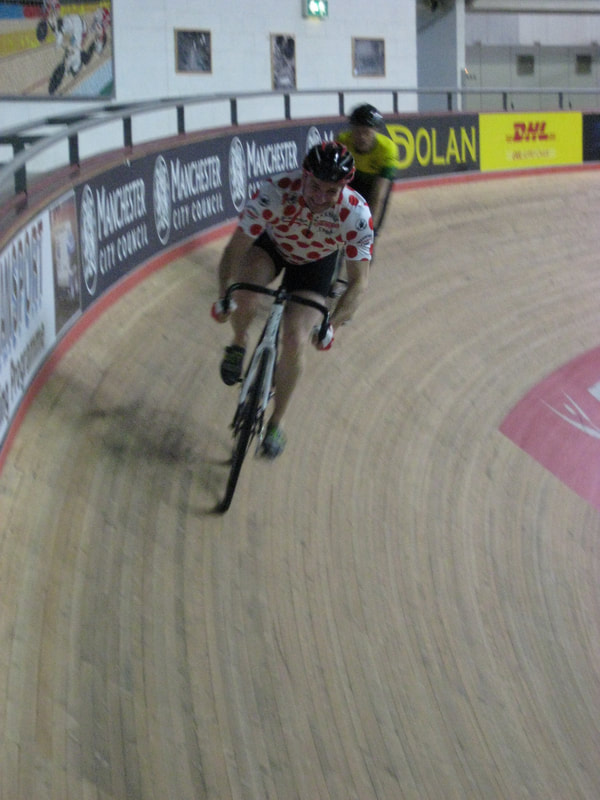

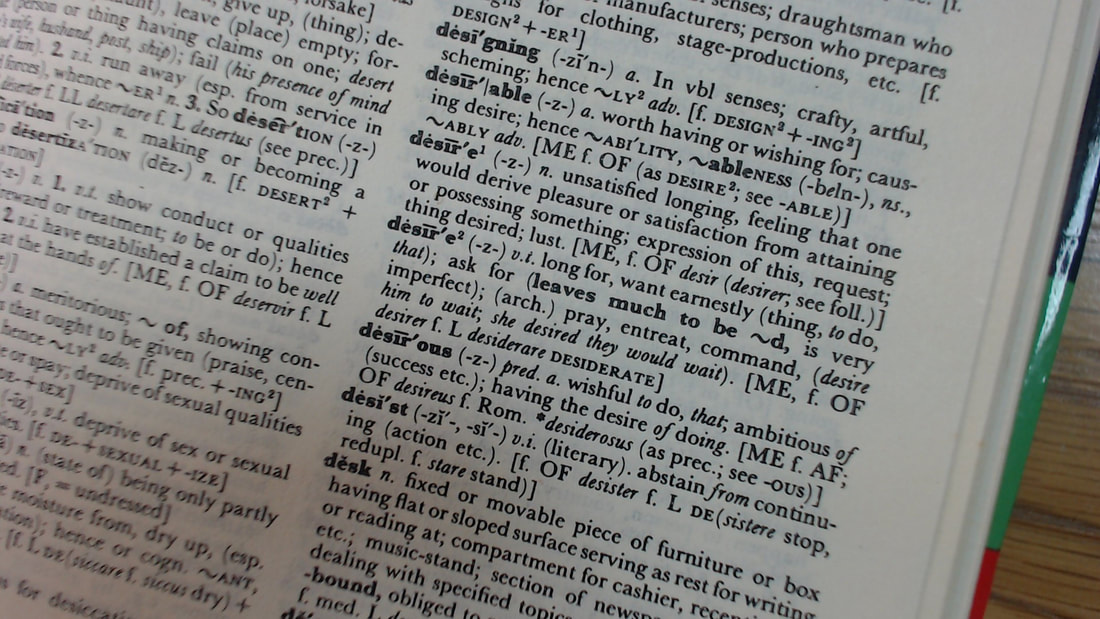
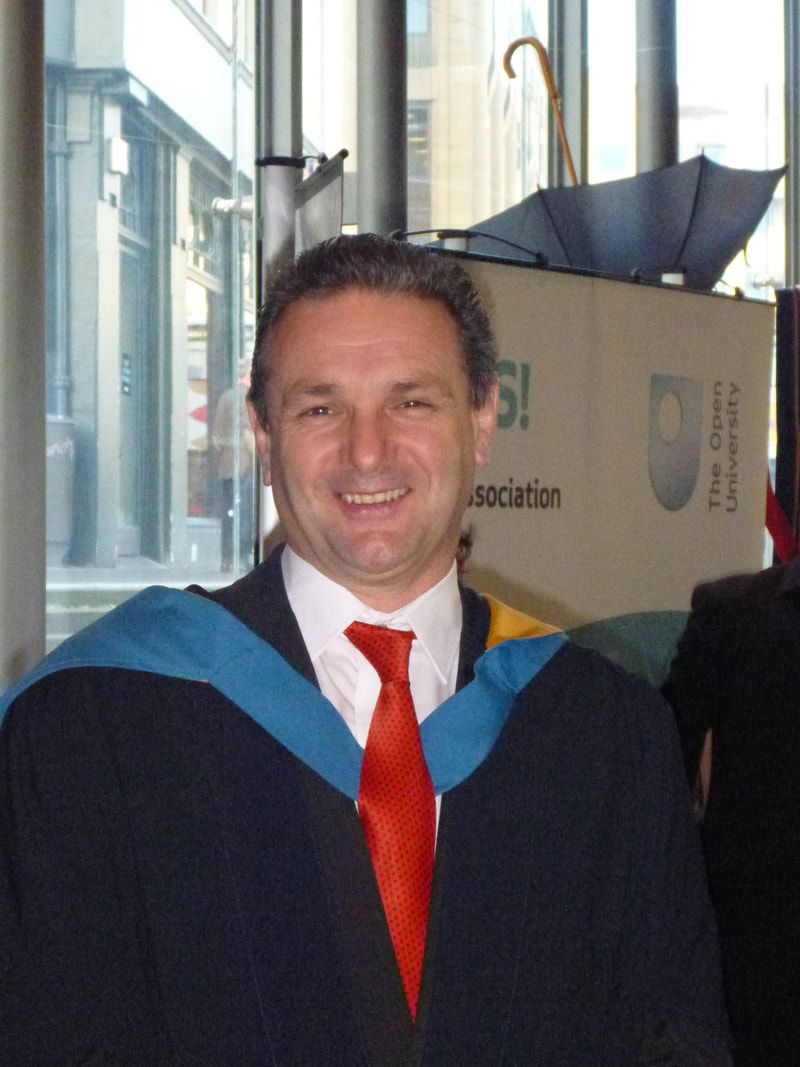




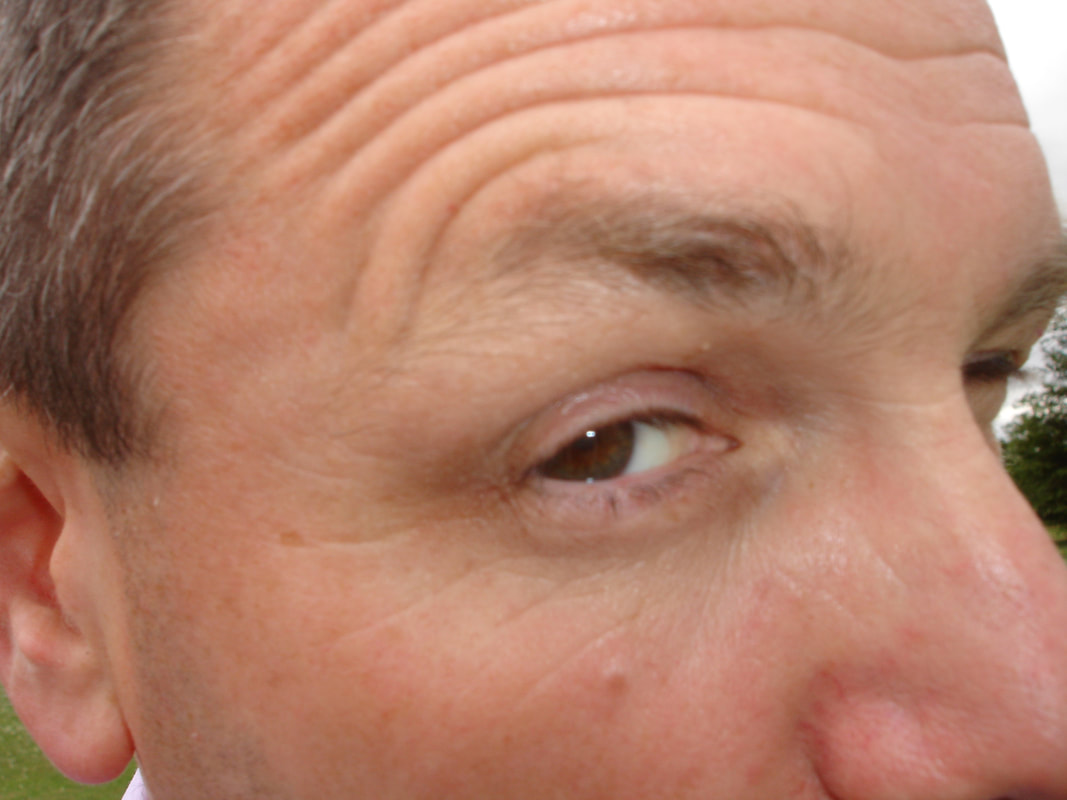

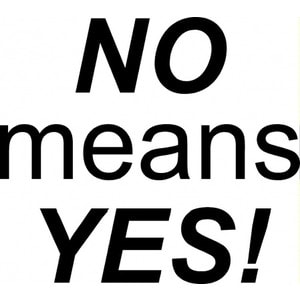
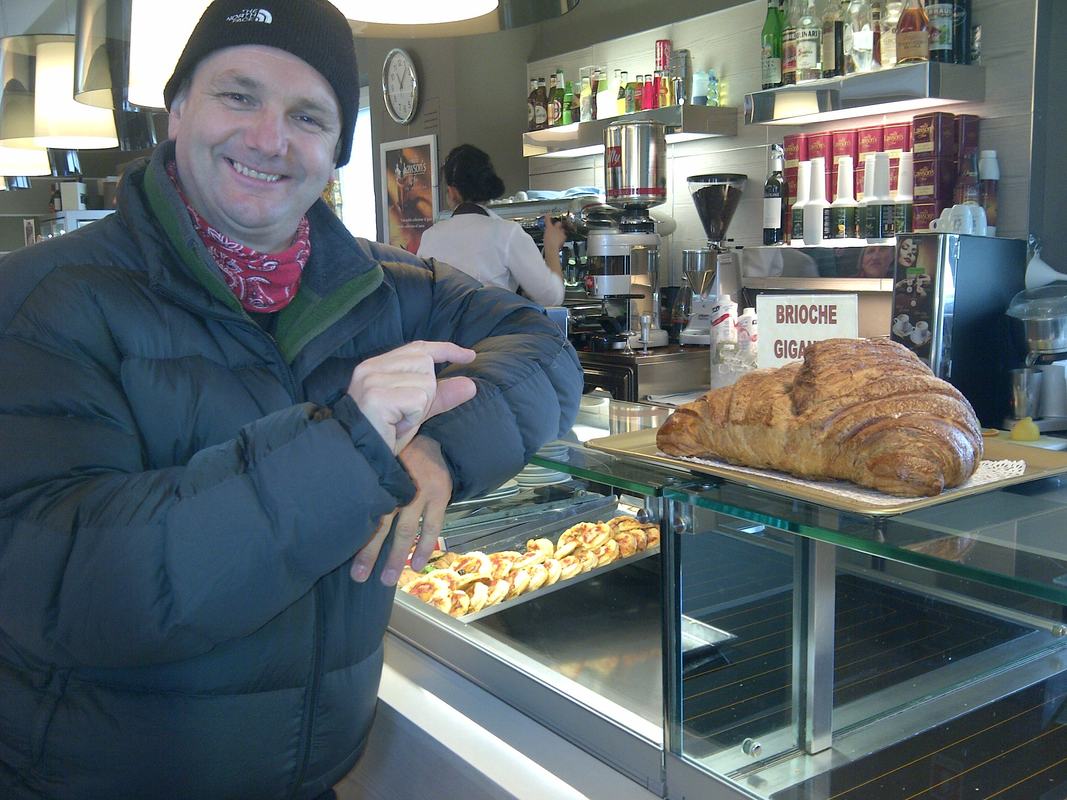



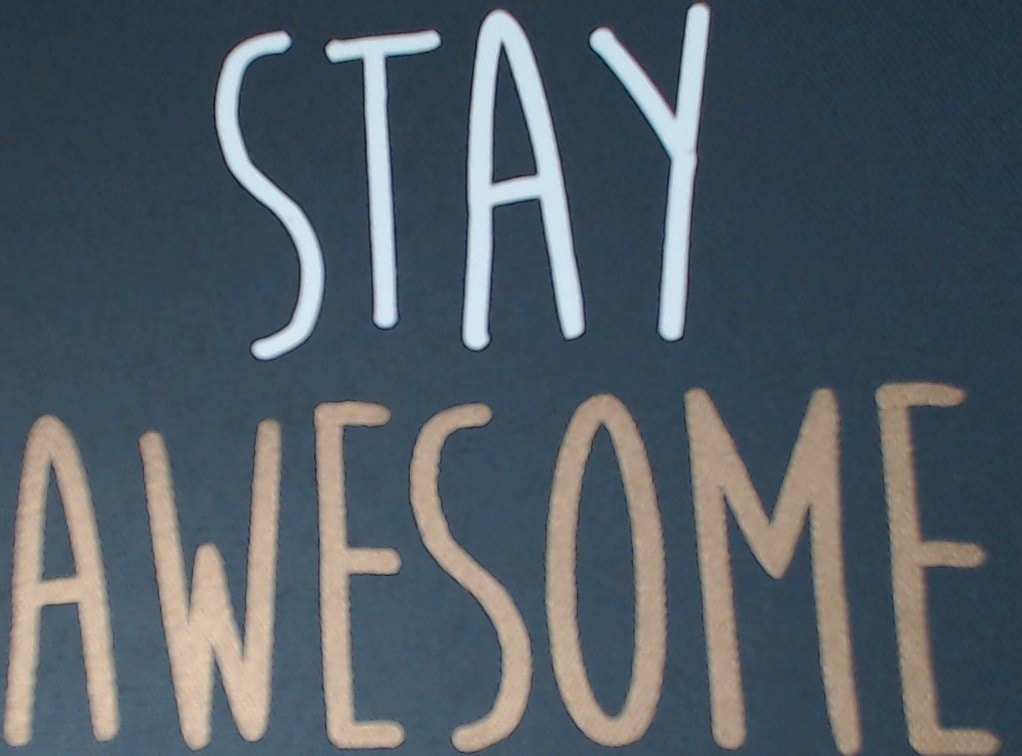
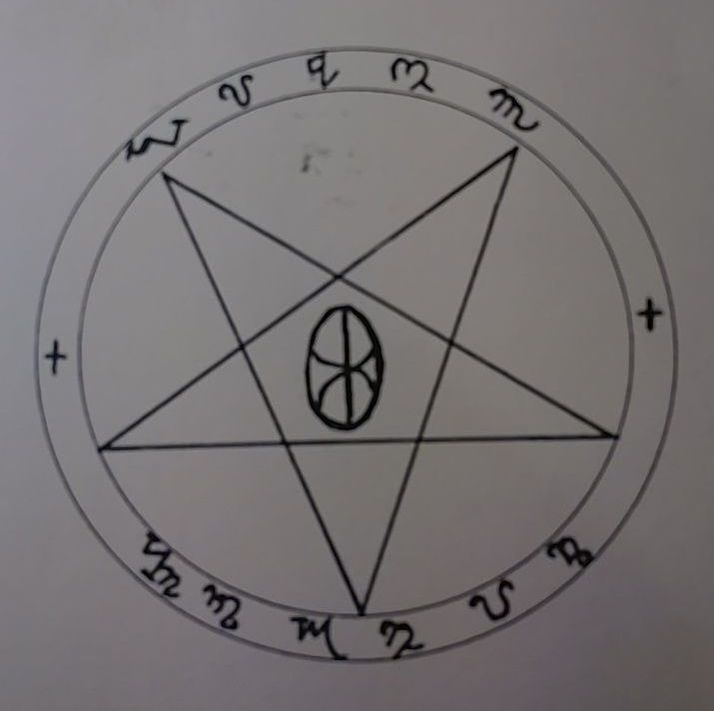
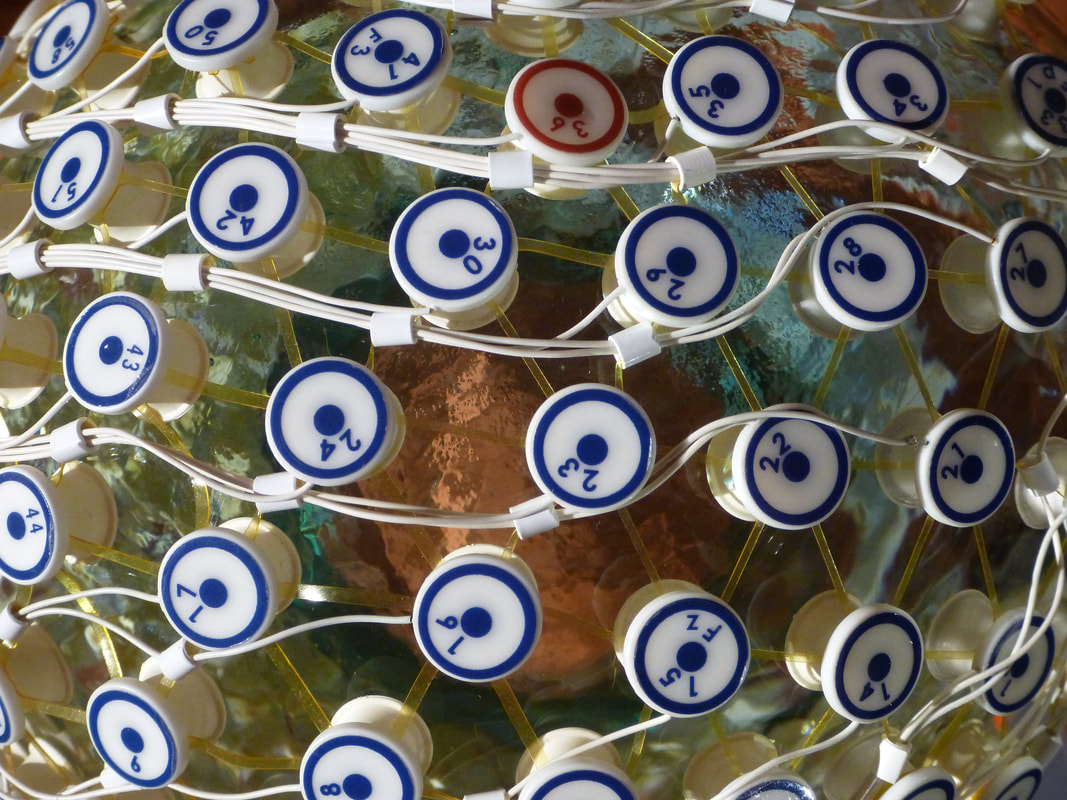
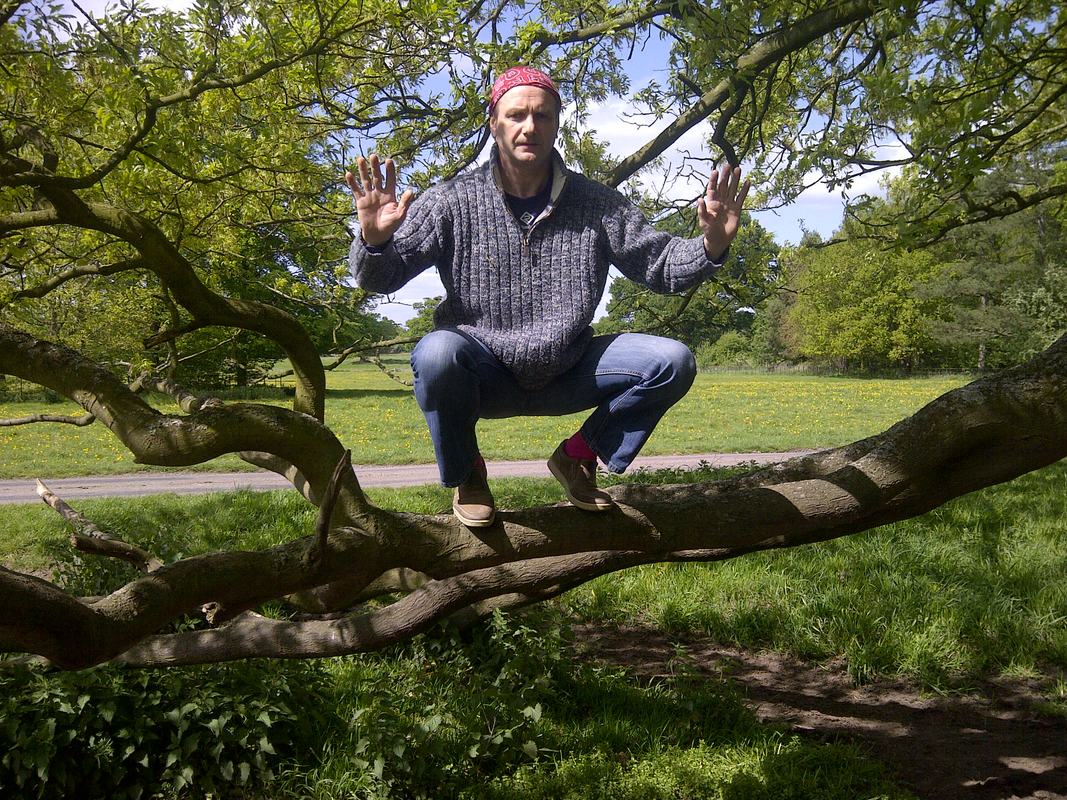

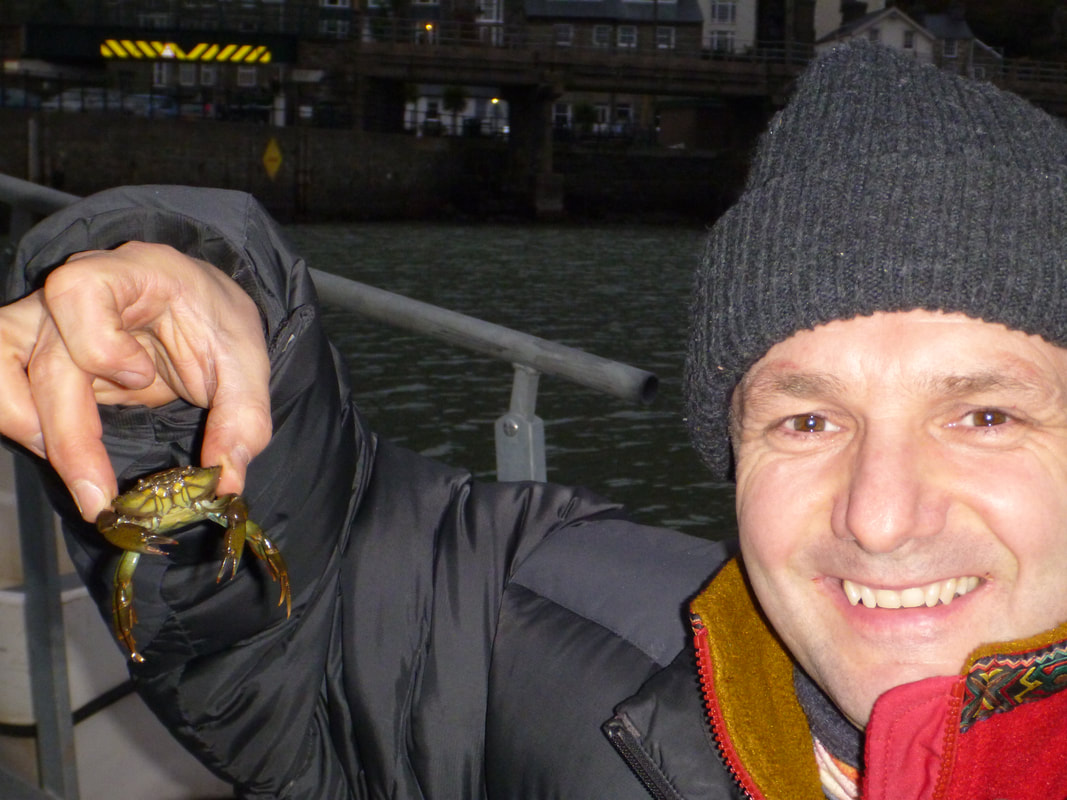
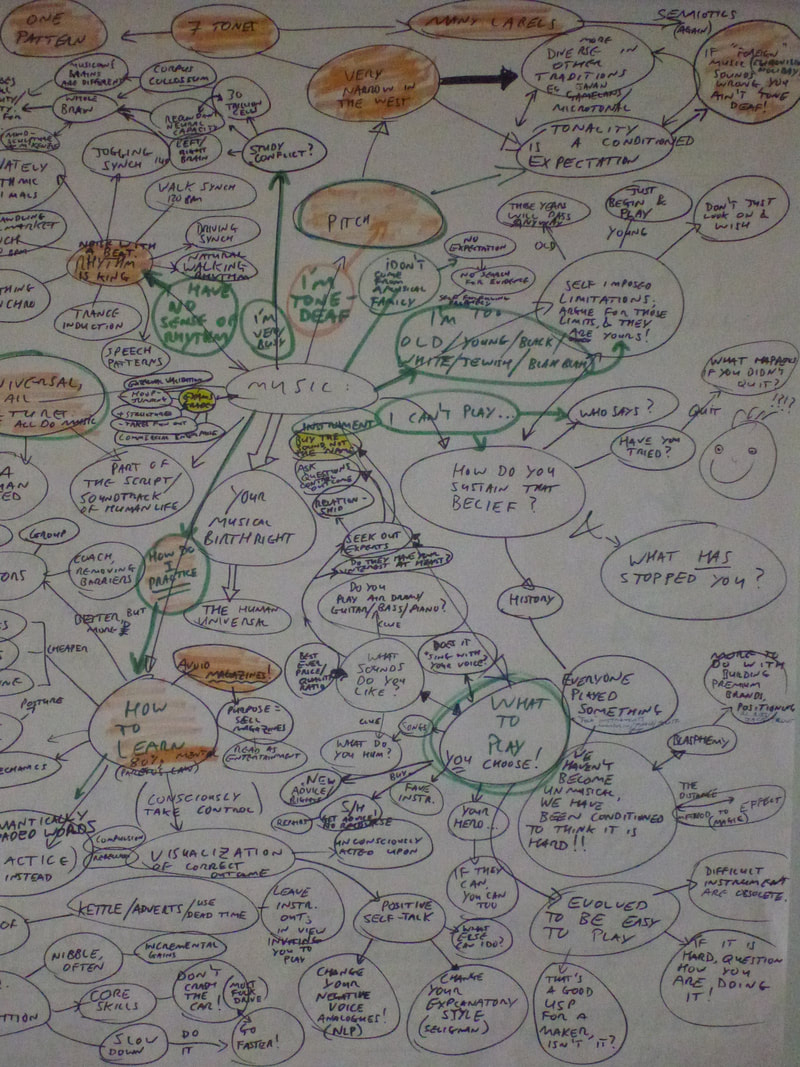
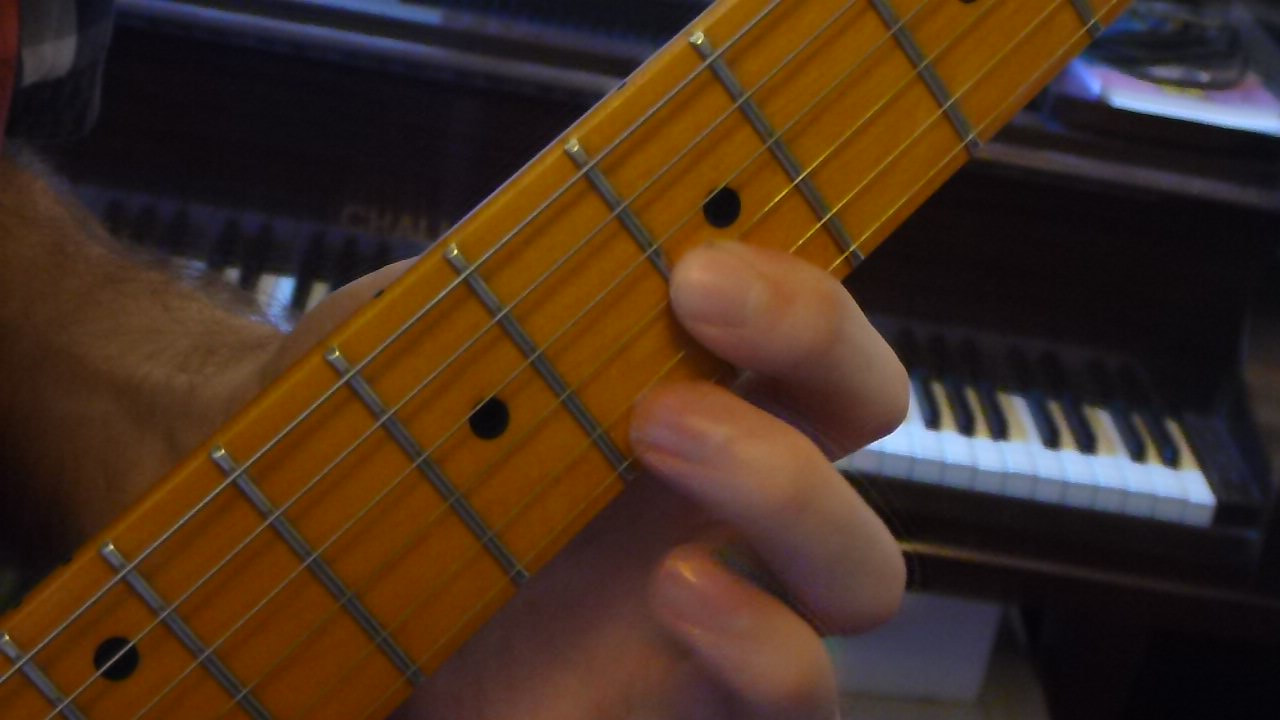


 RSS Feed
RSS Feed